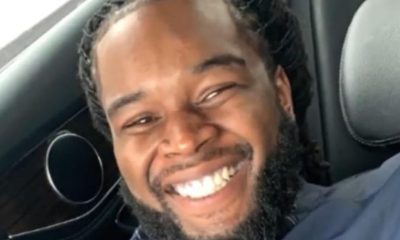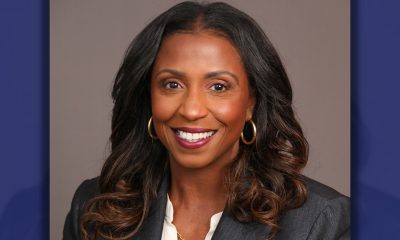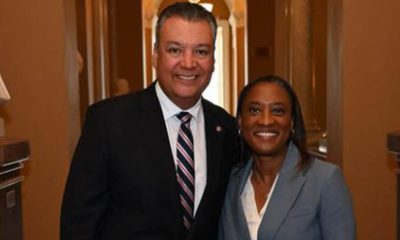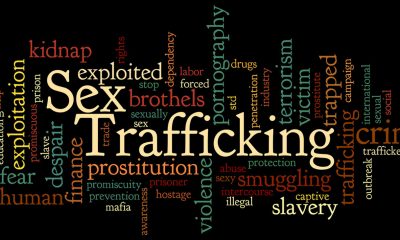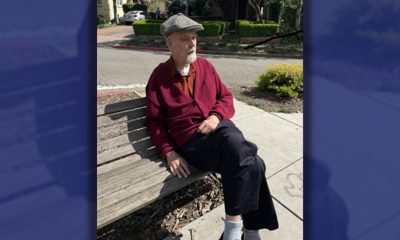Commentary
Texas Democrats Are Getting into ‘Good Trouble’
Here’s why dozens of Texas lawmakers are in Washington, D.C. this week.
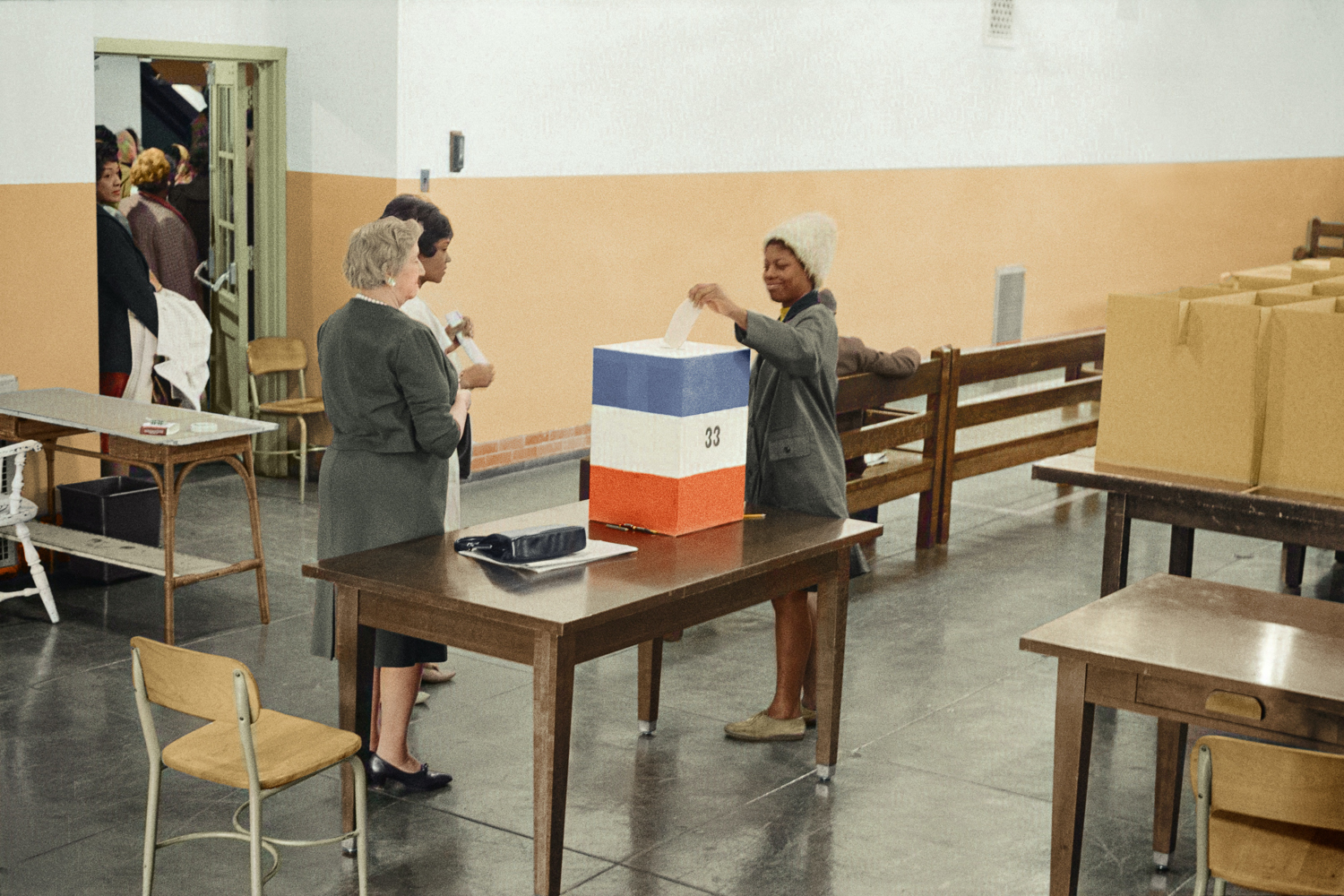
One year after the death of the great civil rights icon John Lewis, a group of Texas Democratic lawmakers is following Lewis’s lifelong call for people to make “good trouble” and “necessary trouble” to secure equality and justice for all.
Congressional Democrats should bring the same level of commitment to resisting and overturning a new wave of voting restrictions that voting rights activist Stacey Abrams has labeled “Jim Crow 2.0.”
Here’s why dozens of Texas lawmakers are in Washington, D.C. this week.
Texas is the latest Republican-run state where legislators and the governor are trying to impose new voting restrictions—banning drive-through and 24-hour early voting, restricting distribution of absentee ballots, imposing new voter ID provisions—that they hope will make it harder for Democrats to win future elections. Their voter suppression laws are aimed at Black and Brown voters and others more likely to support Democratic candidates.
Republican officials are also trying to make former President Donald Trump happy by giving credibility to his false claims that the 2020 election was stolen from him. They’re using his lies about “election fraud” and “election integrity” to justify new restrictive voting rules.
In Texas, Republicans control the state House and Senate. And hard-right Gov. Gregg Abbott is eager to do Trump’s bidding. Back in May, Texas Republicans tried to push their election bill through the House just before the close of the legislative session.
Because the Texas House is required to have two-thirds of its members present to conduct official business, Democratic legislators stopped the bill from passing by walking out of the chamber.
But Abbott is so set on getting his new voting law that he ordered legislators to come back into session this month to push it through. To prevent the state’s Republicans from forcing new voting restrictions into law, more than 50 Democratic legislators left the state.
Abbott and Republican Senate leaders have threatened lawmakers with arrest to try to force them to attend the session. And he has said he will keep calling special sessions until he gets his way. That’s why the Texas legislators came to Wash., D.C. They brought an urgent message to members of Congress: the only way to protect voters from voter suppression at the state level is to pass national voting rights legislation.
The House of Representatives has previously passed the For the People Act, which would reverse many new voting restrictions and includes several priorities specifically outlined by John Lewis during his lifetime, and the John Lewis Voting Rights Act, which would help prevent future voter suppression efforts from taking effect.
Both are essential to protect democracy and voting rights. But right now, U.S. Senate Republicans are using the filibuster to block the For the People Act, and they could do the same to the VRA.
President Joe Biden has just made a strong speech in defense of voting rights. He denounced new voter suppression efforts. And he called for the Senate to pass the For the People Act and the John Lewis Voting Rights Act.
I am grateful that President Biden has called attention to the urgent need for congressional action. Now we need him to use his leadership to get voting rights legislation through the Senate. And if Republicans continue to block it using a filibuster, he must work with Senate leaders to break through that obstruction.
John Lewis nearly died in the struggle to pass the national Voting Rights Act. He dedicated his career in Congress to defending it. I am steeling myself for the disgust I will feel when Republican officials praise him on the anniversary of his death at the same time, they are undermining the cause to which he devoted his life.
Texas Democrats are honoring John Lewis by making good and necessary trouble. It is time for Democrats in Washington, and any Republicans committed more to country than party, to do the same.
Commentary
Opinion: Lessons for Current Student Protesters From a San Francisco State Strike Veteran
How the nation’s first College of Ethnic studies came about, bringing together Latino, African American and Asian American disciplines may offer some clues as to how to ease the current turmoil on American college campuses over the Israel-Hamas war. After the deadline passed to end the Columbia University encampment by 2 p.m. Monday, student protesters blockaded and occupied Hamilton Hall in a symbolic move early Tuesday morning. Protesters did the same in 1968.
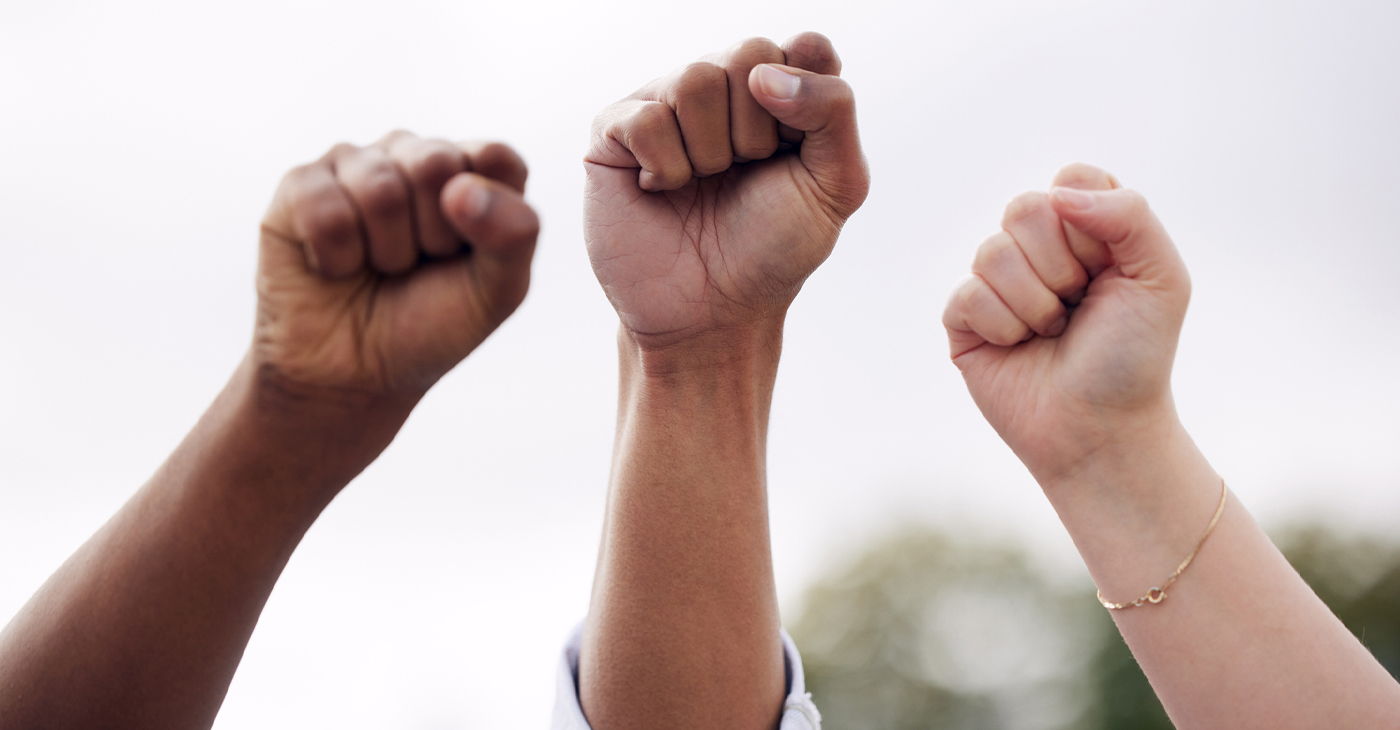
By Emil Guillermo
How the nation’s first College of Ethnic studies came about, bringing together Latino, African American and Asian American disciplines may offer some clues as to how to ease the current turmoil on American college campuses over the Israel-Hamas war.
After the deadline passed to end the Columbia University encampment by 2 p.m. Monday, student protesters blockaded and occupied Hamilton Hall in a symbolic move early Tuesday morning.
Protesters did the same in 1968.
That made me think of San Francisco State University, 1968.
The news was filled with call backs to practically every student protest in the past six decades as arrests mounted into hundreds on nearly two dozen campuses around the country.
In 1970, the protests at Kent State were over the Vietnam War. Ohio National Guardsmen came in, opened fire, and killed four students.
Less than two weeks later that year, civil rights activists outside a dormitory at Jackson State were confronted by armed police. Two African American students were killed, twelve injured.
But again, I didn’t hear anyone mention San Francisco State University, 1968.
That protest addressed all the issues of the day and more. The student strike at SFSU was against the Vietnam war.
That final goal was eventually achieved, but there was violence, sparked mostly by “outside agitators,” who were confronted by police.
“People used the term ‘off the pigs’ but it was more rally rhetoric than a call to action (to actually kill police),” said Daniel Phil Gonzales, who was one of the strikers in 1968.
Gonzales, known as the go-to resource among Filipino American scholars for decades, went on to teach at what was the positive outcome of the strike, San Francisco State University’s College of Ethnic Studies. It’s believed to be the first of its kind in the nation. Gonzales recently retired after more than 50 years as professor.
As for today’s protests, Gonzales is dismayed that the students have constantly dealt with charges of antisemitism.
“It stymies conversation and encourages further polarization and the possibility of violent confrontation,” he said. “You’re going to be labeled pro-Hamas or pro-terrorist.”
That’s happening now. But we forget we are dealing not with Hamas proxies. We are dealing with students.
Gonzales said that was a key lesson at SF State’s strike. The main coalition driving the strike was aided by self-policing from inside of the movement. “That’s very difficult to maintain. Once you start this kind of activity, you don’t know who’s going to join,” he said.
Gonzales believes that in the current situation, there is a patch of humanity, common ground, where one can be both pro-Palestine and pro-Israel. He said it’s made difficult if you stand against the belligerent policies of Benjamin Netanyahu. In that case, you’re likely to be labeled antisemitic.
Despite that, Gonzales is in solidarity with the protesters and the people of Gaza, generally. Not Hamas. And he sees how most of the young people protesting are in shock at what he called the “duration of the absolute inhumane kind of persecution and prosecution of the Palestinians carried out by the Israeli government.”
As a survivor of campus protest decades ago, Gonzales offered some advice to the student protesters of 2024.
“You have to have a definable goal, but right now the path to that goal is unclear,” he said.
About the Author
Emil Guillermo is a journalist and commentator. A veteran newsman in TV and print, he is a former host of NPR’s “All Things Considered.”
Activism
Oakland Post: Week of May 1 – 7, 2024
The printed Weekly Edition of the Oakland Post: Week of May 1 – 7, 2024

To enlarge your view of this issue, use the slider, magnifying glass icon or full page icon in the lower right corner of the browser window. ![]()
Activism
Oakland Post: Week of April 24 – 30, 2024
The printed Weekly Edition of the Oakland Post: Week of April 24 – 30, 2024

To enlarge your view of this issue, use the slider, magnifying glass icon or full page icon in the lower right corner of the browser window. ![]()
-

 Community3 weeks ago
Community3 weeks agoFinancial Assistance Bill for Descendants of Enslaved Persons to Help Them Purchase, Own, or Maintain a Home
-

 Business3 weeks ago
Business3 weeks agoV.P. Kamala Harris: Americans With Criminal Records Will Soon Be Eligible for SBA Loans
-

 Activism3 weeks ago
Activism3 weeks agoOakland Post: Week of April 10 – 16, 2024
-

 Community3 weeks ago
Community3 weeks agoAG Bonta Says Oakland School Leaders Should Comply with State Laws to Avoid ‘Disparate Harm’ When Closing or Merging Schools
-

 Community2 weeks ago
Community2 weeks agoRichmond Nonprofit Helps Ex-Felons Get Back on Their Feet
-

 Community2 weeks ago
Community2 weeks agoOakland WNBA Player to be Inducted Into Hall of Fame
-

 Community2 weeks ago
Community2 weeks agoRPAL to Rename Technology Center for Retired Police Captain Arthur Lee Johnson
-

 Activism1 week ago
Activism1 week agoOakland Post: Week of April 24 – 30, 2024



